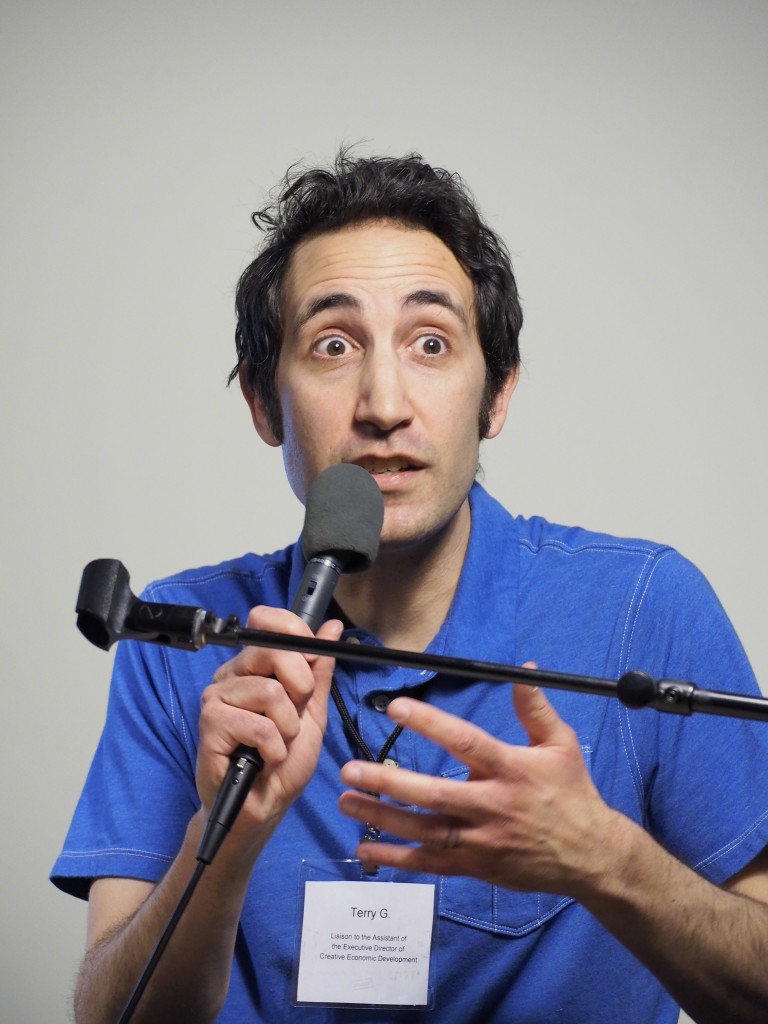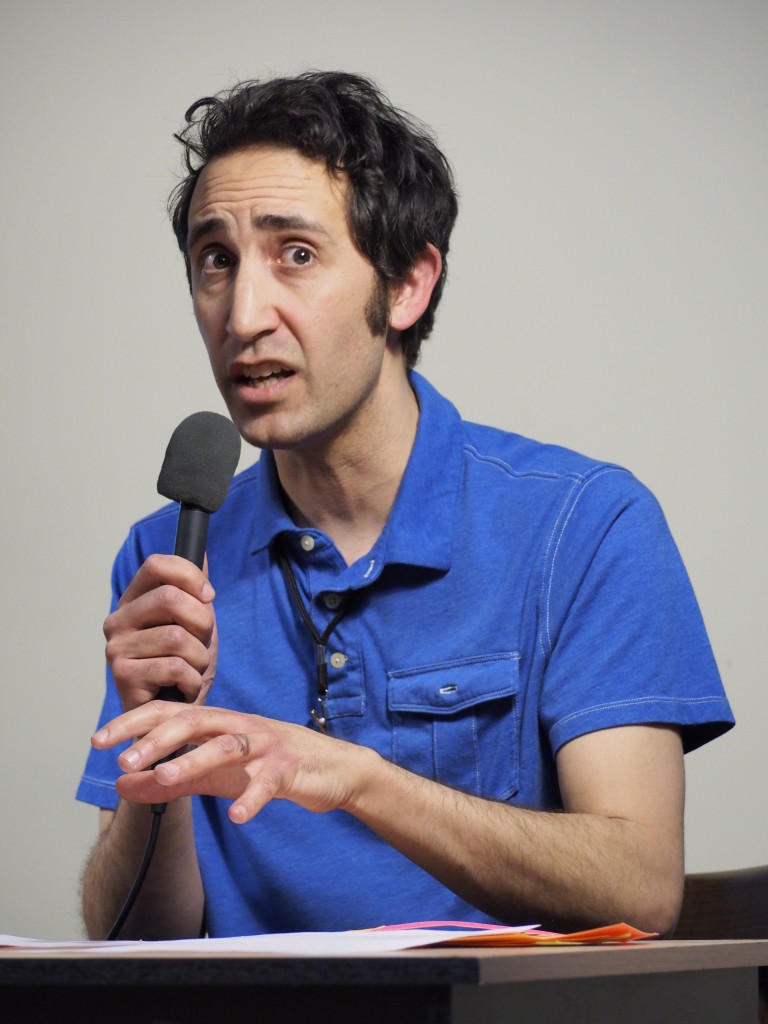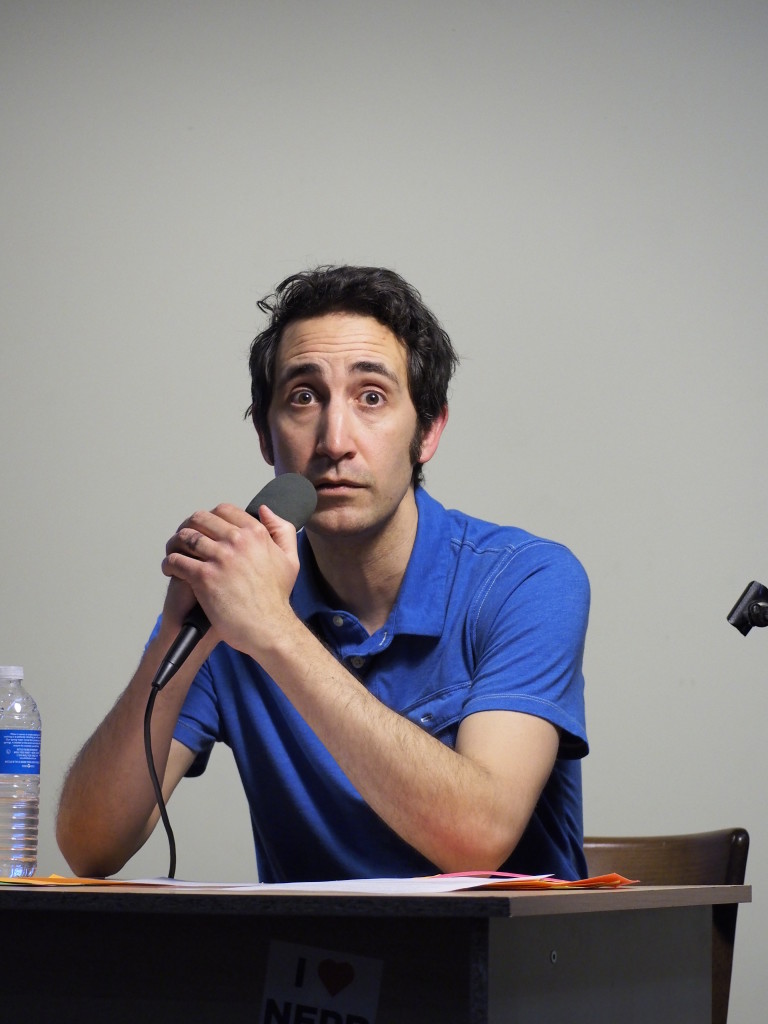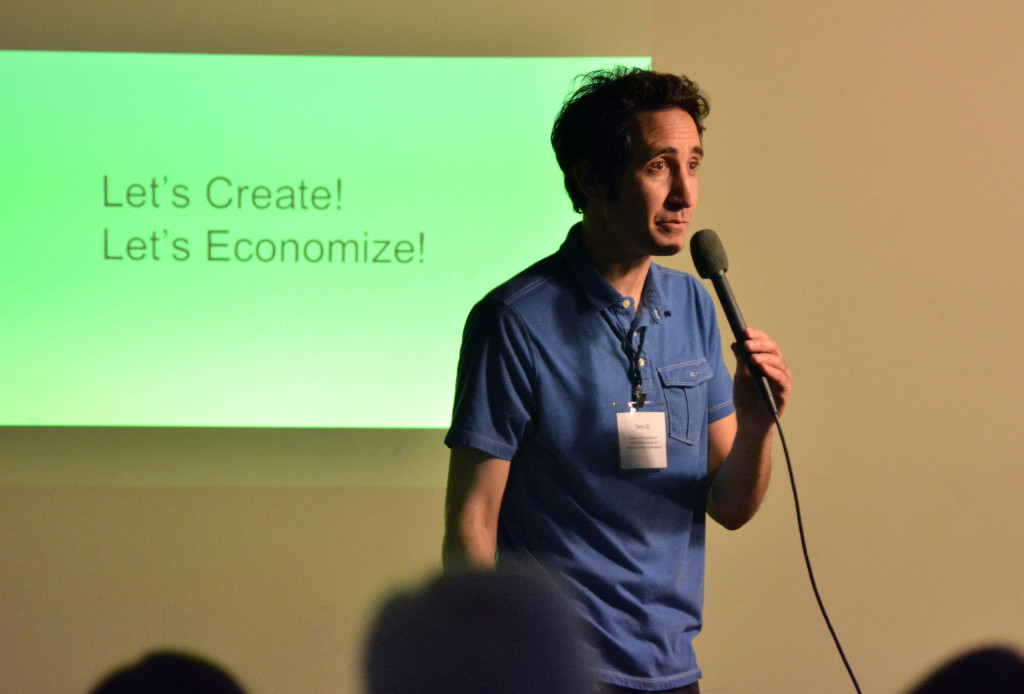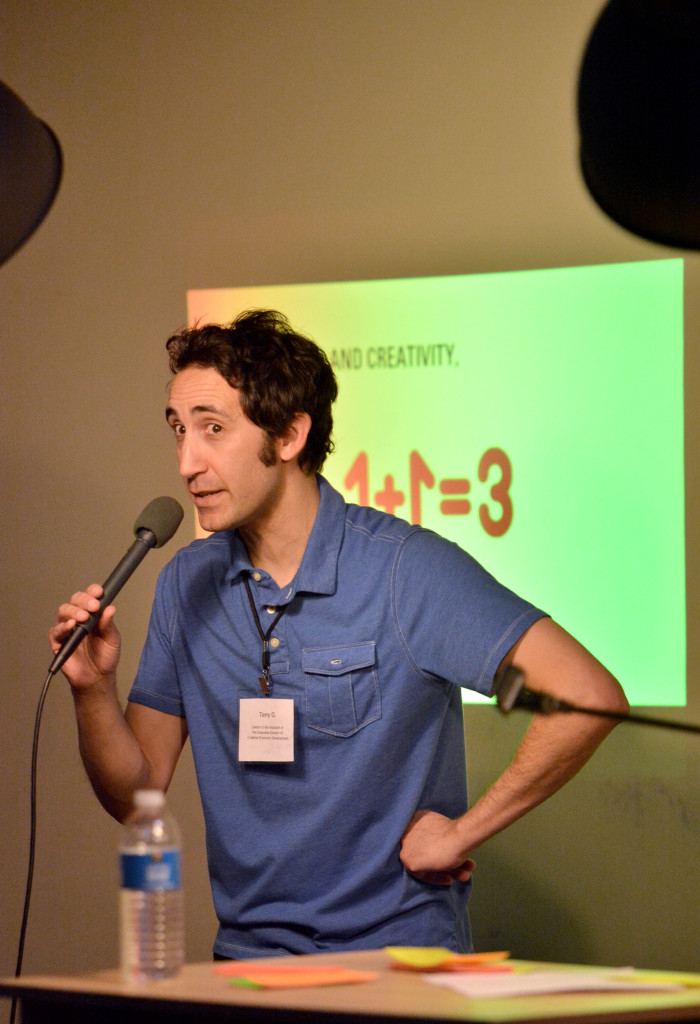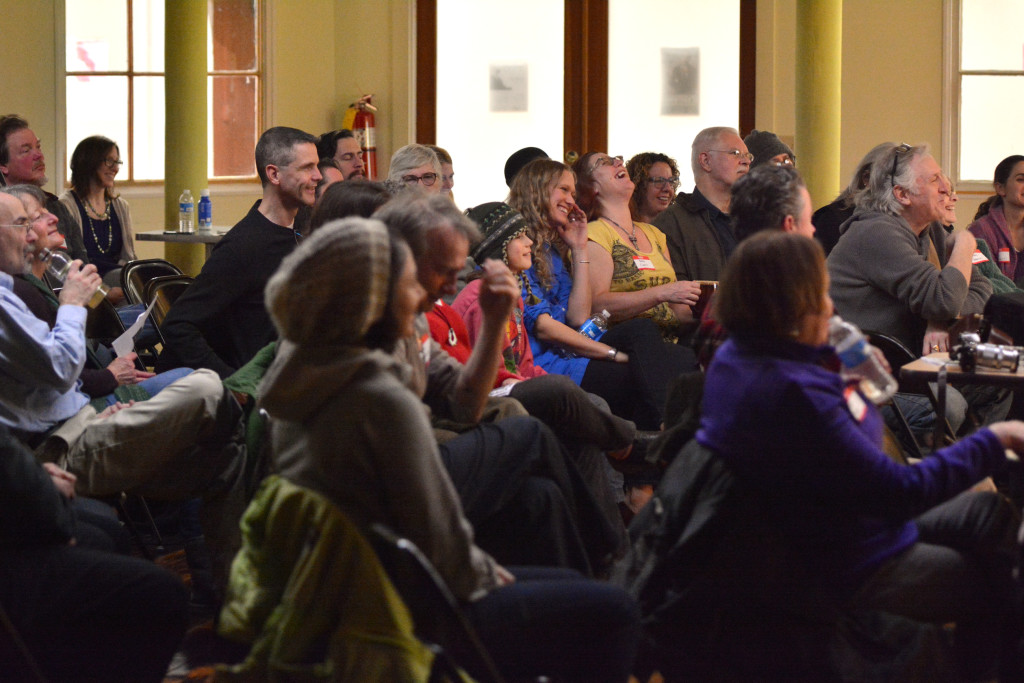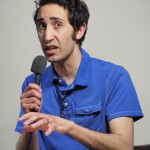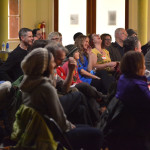- Photos by Jerrey Robers and James Heflin
For a lot of people, it’s the stuff of anxiety dreams: a mic awaits on a stage. An expectant crowd is staring at you. You don’t have a script, even if you’ve done some homework — you just have to talk.
That scenario is, says Seth Lepore, where he thrives. “I’m really interested in being uncomfortable on stage.”
Lepore courts those uncomfortable moments regularly — he hosts his own Seth Show most Tuesdays in a space inside Easthampton’s Eastworks building. A recent (and well-attended) manifestation of the show saw Lepore taking on the idea of the “creative economy.” He alternated between a character named Terry G., “Liaison to the Assistant of the Executive Director of Creative Economic Development,” and himself. Terry G. was preening, a touch slimy and solicitous, and full of feel-good blather backed up by gobbledy-gook in a slide presentation. When the “Terry G.” nametag came off, Seth — as Seth — went on winding diatribes and character-fueled tangents exploring the ideas of local arts economy and the tension between gentrification and artistic edginess.
Most of this, Lepore explains, was improvisation. It’s not all he does, but it’s a central piece. “For the last five years or so, I’ve been touring a lot of scripted shows. But my heart is much more in improv. I like just having a skeletal structure to work of off. I still like scripted shows a lot, but I have a lot more fun not knowing what the hell’s going to happen.”
Improvisation in any artistic medium can be deceptive. In the hands of its best practitioners, improv looks effortless. That veneer of ease usually arrives, however, courtesy of many hours of practice and preparation. “[The night before the creative economy show] I did a lot more prep work,” Lepore says. “I notice I’m putting in a good 10 to 15 hours per week getting ready for these weekly shows. It’s a lot more than I estimated it would take, but I want to do them well. I was rereading books, asking people questions.”
Sometimes, having improvised for years really does equal ease. “[Gubernatorial candidate] Evan Falchuk was supposed to be part of a show last year. He had to cancel last minute,” Lepore says. “I asked myself, ‘Should I run for governor tonight?’ I had people come in and lay down questions about what my thoughts were on different political agendas. I made up the United Masshole Party and I just riffed for an hour. It totally worked. I’m used to being in situations where I don’t have that much time.”
There’s a price an actor pays for merely embarking on such bald-faced improvisation — not every joke works, and not every tangent pays dividends. At the creative economy show, some moments landed big reactions, and others didn’t.
When asked about that kind of danger, Lepore says something surprising: “It’s less stressful going up and not knowing what I’m going to do.”
That’s because, he explains, he’s not constrained. “Last night I felt a lot of expectation — I didn’t realize so many people would be interested in that topic of the creative economy. I had no idea that the way I described it would motivate people to come out and see it. I felt obligated to get into it.”
When there’s not as much planning, things work differently, he explains. “I’m the one showing the threads of the storylines, sometimes putting up a fourth wall, doing a scene then breaking out of that, making the audience into my ‘employees’ or whatever. Sometimes I’ll just stare out into space and people will laugh. I’ll just stare at somebody and say something outlandish and wait. I’m interested in creating those spaces because it feels like there’s a lot of space there for honesty.”
Lepore came to his current ways of working through long acquaintance with performing. He went to an arts high school in Rhode Island, and it was then he got his start. “I actually got started doing solo theater by doing poetry slams 25 years ago — which I realized were basically monologues, not really poetry at all,” Lepore says. “I got started in plays and theater, but I preferred working solo. Once I got into college, I started spending a lot more time in the studio by myself — I’d come up with monologues and characters. I wanted to play all the characters.”
These days, though like many artists he has to supplement his income, Lepore is indeed playing a lot of characters. Not only has he taken several shows on the road, he’s also pulled off at least one feat of improv that would intimidate the most seasoned pro — in 2013, Lepore raised funds for his pursuits with a 12-hour solo show. The Seth Show is a continuing effort, and on a larger scale, too, Lepore is making it up as he goes with different themes and approaches. On Tuesdays in February, he takes on “A Dignified Death,” “Love, Hate, and Lust,” “Creeps, Pervs, and Shysters,” and “The Art of Manipulation.”
All Lepore’s efforts seem to pay off for him via that hard-to-describe mental space that can be reached only through the rigors of improvisation, no matter the medium. “[Sometimes] I feel like I’m in that zone,” he says. “You get into this really precise presentness, and everything just kind of locks in. People talk about runner’s high and things like that, and it’s a similar kind of thing, and people are also responding to that.
“The greatest thing that can happen when you’re performing is to get into a timeless space where everything is flowing and you’re just in it, and you feel the energy moving back and forth in an organic kind of way. I think everybody who creates, whether they’re a writer or musician or whatever, knows there’s that moment where they’re totally in it.”
The Seth Show happens at 7 p.m. most Tuesdays, including every Tuesday of February, in Suite 160 (across from Riff’s restaurant), Eastworks, 116 Pleasant St., Easthampton, sethums.com.

